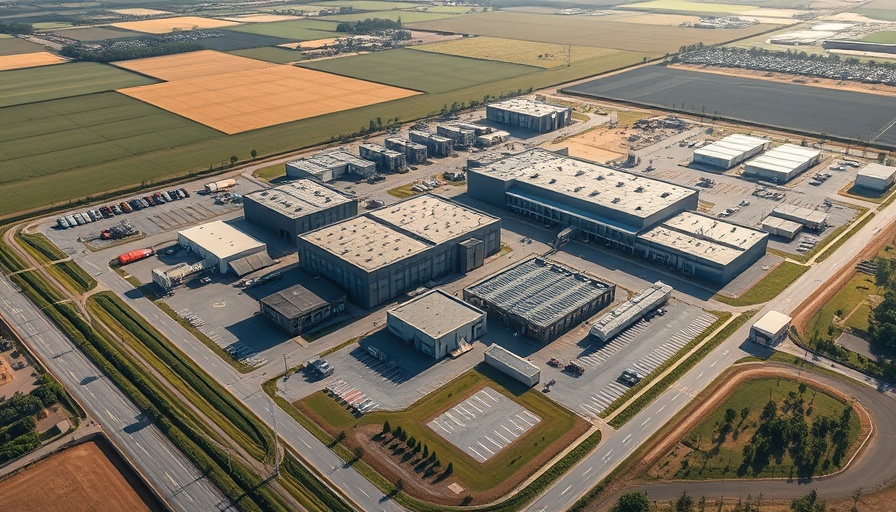
The Dawn of a New Era in AI Infrastructure
In a groundbreaking move for artificial intelligence, OpenAI has partnered with Oracle to massively increase data center capacity for its Stargate AI infrastructure platform. This ambitious project, which is set to transform the tech landscape in the United States, aims to deliver a staggering 4.5 gigawatts of additional data center power.Traditionally, Texas has served as fertile ground for technology initiatives, and the city of Abilene, with its existing tech infrastructure, is a strategic choice for this kind of expansion. With an economy transitioning from agriculture to technology, Abilene embodies the change that many cities are experiencing in the modern age.
Why This Data Center Matters
OpenAI's decision to commit a portion of its $30 billion yearly investment to this project highlights the robustness of AI technology's market demand. The company initially pledged to spend nearly $500 billion on AI infrastructure over four years, and this expansion is a significant step toward fulfilling that promise. As the energy consumption of these data centers is equivalent to powering approximately 4.4 million homes, it underlines the sheer magnitude of AI's growth and potential environmental implications. This brings into focus vital concerns on digital security and online safety; an issue that is increasingly important as AI systems develop and scale faster than security measures can adapt.
Employment Opportunities and Economic Impact
Moreover, OpenAI’s development in Abilene is expected to create numerous jobs, not just in construction, but also in technology sectors related to operations and services. These new roles will provide opportunities for professionals and skilled workers within a region already evolving in the tech sector. With the promise of building AI's future also comes the responsibility of ensuring cybersecurity is prioritized.
Cybersecurity Challenges Ahead
With such significant expansions, the need for robust cybersecurity becomes paramount. AI technologies can both protect and threaten digital environments. On one hand, innovations like AI-powered encryption and automated security AI tools can enhance data protection and fraud prevention. On the other hand, these same technologies can be leveraged by cybercriminals, creating a continuous arms race in digital defense. The intersection of AI and cybersecurity will be crucial as we look toward the future of online security in 2025.
In a world where online threats are becoming increasingly sophisticated, understanding the implications of these advancements is vital. Technologies like machine learning for cybersecurity can play a fundamental role, helping organizations detect vulnerabilities and respond to threats more effectively. As more data centers spring up, the need for comprehensive cybersecurity solutions will only continue to grow.
For the tech-savvy readers, engaging with these developments not only provides insight into how AI will reshape our infrastructure but also raises vital questions about security measures in place to protect our digital information.
 Add Row
Add Row  Add
Add 




Write A Comment